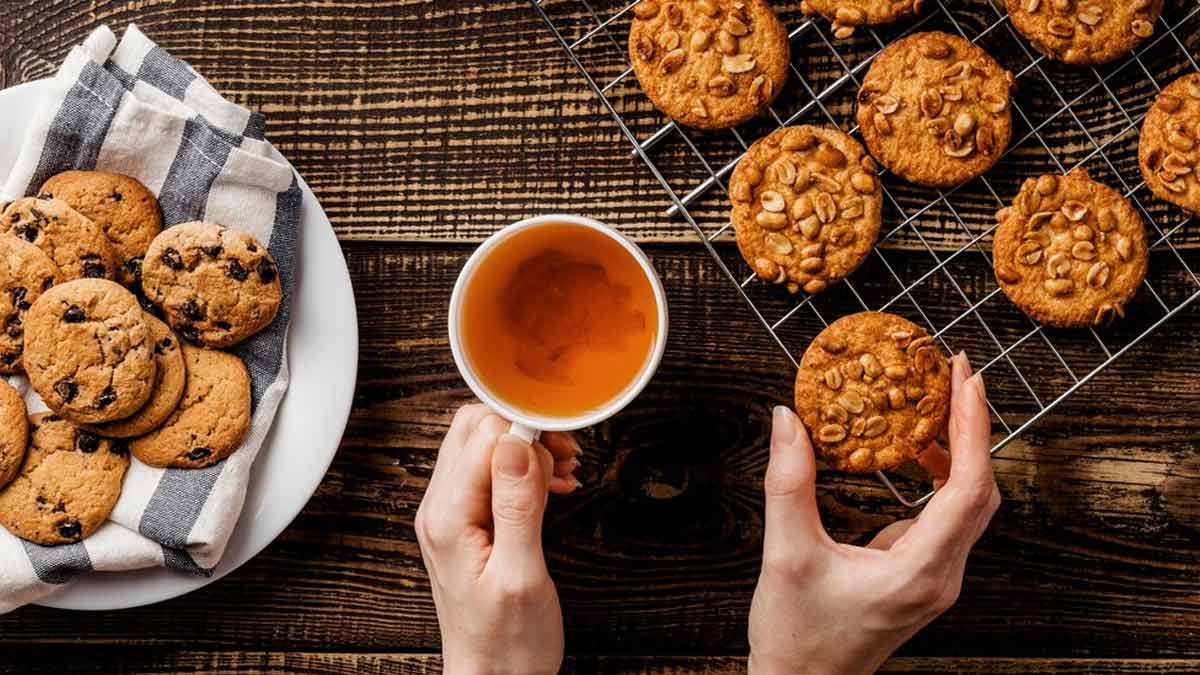
All of us tea lovers know how much we love pairing it with the perfect snack. A packet of rusks, some namkeen or biscuits, tea cakes, and for those who are health conscious, a handful of nuts. While eating nuts like almonds, walnuts, and cashews may seem healthy, Swati Bathwal, Nutritionist, Dietician, And Diabetes Educator shared with the OnlyMyHealth team, it may not be as good for your health as you think.
Table of Content:-
Does Tea Cause Iron Deficiency?
Sometimes eating healthy foods can be counterproductive and you may be left wondering that despite your best efforts to have a clean diet why can you not see any results? The answer is that you also need to be mindful of the interplay between various nutrients and food pairings.

Bathwal said, " Due to the presence of compounds tannins and catechins, tea reduces iron absorption from the foods you pair with it." She advised against pairing your tea with iron-rich foods like roasted chana or Bengal gram.
Tea, renowned for its antioxidant properties and diverse flavours, contains compounds known as tannins and catechins. While these compounds offer health benefits, they also possess the ability to reduce the absorption of iron from foods consumed alongside tea. This effect has notable implications, especially for individuals prone to iron deficiency or at risk of anaemia.
What To Eat With Tea?
To optimize iron absorption and derive maximum nutritional benefits, consider the timing and combinations of foods with tea. For those with iron deficiency concerns, Bathwal recommends consuming nuts or iron-rich snacks like roasted chana at least 30 minutes to one hour before or after drinking tea. This interval allows for better iron absorption, ensuring that your body can utilise this essential mineral efficiently.

She advised, "For those dealing with iron deficiency, it would be a better option to pair your daily tea with makhana, poha or homemade millet crackers and oats biscuits."
Selecting these alternative tea accompaniments can enhance your iron intake without compromising absorption. These options not only complement the tea-drinking experience but also contribute positively to your iron levels.
It's important to note that while tea can impact iron absorption, incorporating a variety of iron-rich foods in your diet remains crucial for overall well-being. Foods such as lean meats, legumes, dark leafy greens, fortified cereals, and dried fruits are excellent sources of dietary iron. Balancing these with your tea preferences ensures a holistic approach to nutrition.
Also Read: White Tea Vs Green Tea: Expert Shares Which Is Better For Your Health
Bathwal concluded that being mindful of the tea and food combinations can significantly influence iron absorption in the body. By strategically timing your snacks and choosing suitable accompaniments, you can optimise nutrient uptake and support your overall health goals. Remember, a well-rounded diet, tailored to individual needs, forms the cornerstone of a healthy lifestyle. Cheers to informed choices and nourishing habits!
Also watch this video
How we keep this article up to date:
We work with experts and keep a close eye on the latest in health and wellness. Whenever there is a new research or helpful information, we update our articles with accurate and useful advice.
Current Version